Please see the RRN's Q&A page for the RRN Training Standards here.
FAQ
Below you will find answers to some common questions.
Please also see the Customer Handbook and other guidance available on the Resources page.
The RRN Training Standards set a baseline standard for those training programmes that cover the use of restrictive interventions.
RRN Certified Training is approved training delivered by what are referred to as a ‘Certified Training Services’.
The ‘Certified’ status is only conferred upon training providers, who have been assessed and approved by a Certification Body that is licensed by the Restraint Reduction Network and are also accredited by UKAS. At present, the only certification body is Bild Association of Certified Training (ACT), but this may change in the future.
Since 2020, there has been a contractual requirement for staff working within specialist commissioned NHS services1, who use restrictive interventions, to have undertaken ‘RRN Certified Training’.
In addition to this, the Mental Health Units [Use of Force] Act Statutory Guidance requires mental health service providers operating a mental health unit to use ‘RRN Certified Training’ where staff need to be trained in the ‘Use of Force2
Furthermore, the CQC have stated they expect those service providers they inspect will use ‘RRN Certified Training’.
From 2016, trusts in scope of the NHS ‘Agency Rules’ are required to procure all agency staff via the framework agreements or arrangements approved by NHS Improvement. Staff working within agencies operating under the auspices of such framework agreements need to be mindful that some trusts/private service providers may insist that incoming staff complete their own unique, in-house certified training.
1‘Mental Health’, ‘Learning Disability’, ‘Autism’ and ‘Dementia’ services, including low, medium and high secure services
2This includes physical, mechanical, or chemical restraint of a patient, or the isolation of a patient (which includes seclusion and segregation)
ACT are a certification body and do not deliver any training.
As the certification body, ACT do not endorse any particular organisation. We recommend that if you are either searching for a ‘Certified Training Service’, or seeking to establish whether a known training provider is certified, you visit the Certified Training Services page of this website.
If you want any information about the training delivery of any ‘Certified Training Service’, e.g., prices, the location of training, and the length or content of specific you need to contact the ‘Certified Training Service’ directly. The contact details for each certified training service are listed in their individual entry on the website.
In short, the answer is NO.
PMVA is a very general term used to describe a broad type of training, i.e., one that involves teaching staff how to apply restraint techniques.
There are various other general descriptive terms that are used to refer to this type of training: ‘Restraint Training’, ‘Restrictive Intervention Training’, ‘Restrictive Physical Intervention’ or ‘RPI Training’, ‘Physical Intervention Training’, ‘Positive Handling Training’ ‘Clinical Holding Training’, ‘Therapeutic Holding Training’, and ‘Safe Holding Training’ amongst many others.
In other instances, a convention has developed where an organisation, or company name can be used as a shorthand for the training.
There may also be reference made to training programmes that are ‘accredited’, ‘approved’, ‘authorised’, ‘licensed’ or ‘recognised by..’ some or other body, or alternatively a statement to the effect that curricula or training is ‘Aligned to…’, ‘In line with..’ ‘Mapped against..’, or ‘Following’ the RRN Training Standards.
To avoid any confusion, when you have determined that you need RRN Certified Training, then you should use the Bild ACT website to locate a ‘Certified Training Service’. When you scan through the individual entries of the different organisations, you will see that each use their own unique course titles. The curricula listed under each ‘Certified Training Service’ are all RRN Certified.
This means that the organisation has applied to become certified but have not yet completed the process. As such certified status cannot be guaranteed.
It is also worth pointing out that the requirements, such as they are, are for formally ‘certified’ training rather than as yet uncertified training:
- The Mental Health Units (Use of Force) Act statutory guidance states “Certified training that complies with the RRN Training Standards became a requirement of NHS commissioned services for people with learning disabilities, autism or mental health conditions in April 2020” (p.43) [source]
- The NHS Standard contract requires certified training to be in place for all NHS commissioned Mental Health, Learning Disability and Secure Services.
- The “Care Quality Commission will expect services across health and social care to have certified training that complies with the RRN Training Standards from April 2021” (p.43) [source]
In the event that an organisation is not in receipt of certified training, the CQC are likely to consider taking appropriate action.
If an organisation is receiving training from an organisation that is working towards certification, or they are in the process themselves, the CQC may take this into account when consider the most appropriate course of action.
We are aware of a growing number of commissioners who are also making certified training a contractual requirement. You are advised to check local agreements.
These are service provider organisations that deliver certified training within their own organisations on behalf of a Certified Training Service. Sometimes described as satellite training organisations, or training centres that are authorised or approved to deliver a defined system or model.
As the name suggests, such organisations are affiliated to a Certified Training Service.
The Certified Training Service to which the organisation is affiliated have a responsibility to maintain the quality and integrity of the training delivery.
This includes ensuring that approved curricula are maintained, and that ‘Associate Trainers’ maintain their RRN competence.
In the event that non-conformities [i.e., deviations from the requirements laid out in the RRN Training Standards] are identified by the Certified Training Service, or by Bild ACT, a Non-Conformity Action Plan will be required.
In the event a Non-Conformity Action Plan is not discharged fully, within a reasonable timeframe, the Affiliates approved status may be suspended. This means they would not be permitted to deliver certified training.
For certification purposes there are two kinds of trainers referred to in the RRN Training Standards:
Senior trainers deliver train the trainer programmes or deliver training to staff in other organisations. Such training is most typically undertaken by trainers working within commercial training providers [or service providers who offer training commercially].
Associate trainers only deliver training to staff in their own organisation. They cannot train staff in other organisations. Associate trainers can work alongside senior trainers in commercial organisations to ensure there are enough trainers to meet the ratio requirements. They do not deliver train the trainer programmes.
Affiliate Associate trainers only deliver training to staff in their own organisation, which is affiliated to a Certified Training Service. They cannot deliver train the trainer programmes or train staff in other organisations.
When a standard refers to all trainers it means both senior trainers, associate trainers and affiliate associate trainers.
All trainers must be RRN competent. The requirements are outlined in section four of the RRN Training Standards.
Approved Trainer status is non-transferable across organisations, employers or other training organisations.
All trainers are expected to have their competence assessed annually (Standard 4.3.3) and all senior trainers must successfully complete a minimum of two days refresher training annually (Standard 4.3.4).
In exceptional circumstances trainers may inadvertently miss refreshers or updates. Under the scheme, a maximum of 3 months overrun is permitted, due to circumstances beyond the control of the trainer or training provider. In no circumstances should it be used to extend the period between training sessions.
Circumstances which may be considered valid include:
- Sick leave
- Injured or unfit to train
- Pregnant/maternity/paternity leave.
If a trainer doesn’t complete their refresher within 12 weeks, they will no longer be considered competent and will be removed from the list of approved trainers. The trainer will not be approved to deliver certified training until they have undertaken a full train the trainer programme.
The onus would always be on certified training services to provide evidence when requesting additional time in exceptional circumstances. For more information, see the Customer Handbook on the Resources page.
The RRN Training Standards state: “Refresher training must take place as a minimum annually”. This is in order that knowledge remains up to date and, importantly, that individuals are deemed to be competent in the use of any physical skills.
There are sometimes exceptional circumstances where a member of staff might not be able to complete refresher training within the twelve-month period. Circumstances which may be considered valid include:
- Sick leave
- Injured or unfit to train
- Pregnant/maternity/paternity leave.
A period of up to 12 weeks may be permitted to deal with such unavoidable absences. In no circumstances should it be used to extend the period between training sessions.
If a staff member doesn’t complete their refresher within 12 weeks, best practice is to retrain and complete the full RRN Certified course, typically 3–5 days in length.
These organisations have close working relationships but are separate and distinct entities.
- Bild is a charity launched in 1971 that focuses on helping those supporting people with complex needs – including members, universities, government departments, local authorities, NHS trusts, service providers and mainstream organisations - to champion rights, ensure excellent support and continually improve practice.
- The RRN is currently chaired by Professor Joy Duxbury, and has a National Steering Group with representation from the CQC, NHSE, HEE, ADASS, Department for Health and Social Care, The Department of Education, RCN, NAPICU, Ofsted, MIND, Bild, British Institute of Human Rights and as well as various Universities, Academics, individuals with lived experience as well as representation from Certified Training Services. The Restraint Reduction Network licences certification bodies to use the RRN Training Standards and requires certification bodies to be accredited by UKAS as complying with the ISO standards for service certification (ISO/IEC 17065).
- The United Kingdom Accreditation Service (UKAS) is the national accreditation body for the United Kingdom, appointed by government, to assess organisations that provide certification, testing, inspection and calibration services.
- Bild ACT was formed in 2018 and is a separate and distinct business entity. None of the staff, or trustees work for Bild or the RRN.



